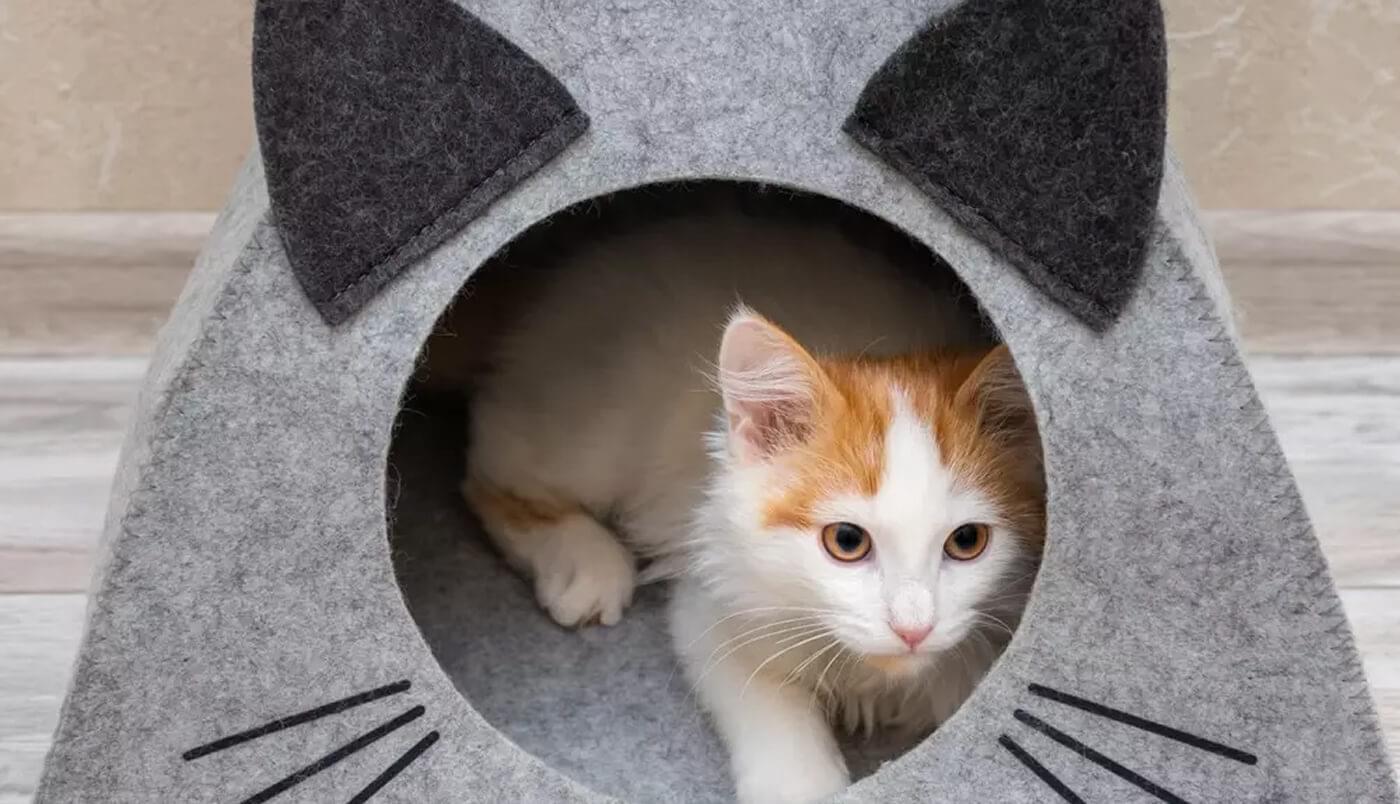Choose your pet type, and we'll help with the rest
How to Choose and Buy a Pet - Expert Advice
Buying a pet brings great joy!
Our recommendations will help you prepare for your new role as a pet owner and learn all the important details in advance.

How to Choose a Kitten
First, determine your purpose for getting a pet
Are you looking for a companion, want to engage in breeding for sale, or plan to participate in professional exhibitions and competitions?
Get familiar with your future pet's breed characteristics
You should consider temperament, activity level, and many other factors that will ensure you have a long and happy life together.
Choose a reliable breeder
To avoid becoming a victim of unscrupulous sellers, follow the recommendations from our checklist.
What Determines Kitten Prices
Price depends on which class the pet belongs to
Pet Class (companion animals)
The most affordable pets that will become beloved family companions. Pet-class kittens/puppies are not intended for breeding or exhibition careers.

Prices for kittens/puppies with and without documentation differ significantly
With Official Documentation
Breeding and maintaining purebred kittens/puppies requires significant effort and financial investment. A pet with official documents, pedigree, and confirmed health (both physical and temperamental) costs more but provides assurance of quality.
Without Official Documentation
Without proper documentation, you risk being deceived by unscrupulous sellers. True breed characteristics often don't appear until 4-6 months of age, by which time the kitten/puppy may display traits of a completely different breed.
Expert Advice
If you're unsure how to choose a kitten, our comprehensive guide can help. We'll explain the main criteria for selecting your future pet and where to find reputable sources. These recommendations will be valuable for anyone dreaming of getting their first feline companion.

Article Contents:
- • What to consider before choosing a kitten
- • How to properly select a kitten
- • When is a kitten ready to leave its mother
- • Adopting from shelters vs. street rescues
- • Essential recommendations for new owners
- • Complete kitten selection and purchase checklist
Thorough analysis during the preparation stage will help you weigh all the pros and cons, and discuss important considerations with family members. This ensures everyone reaches a consensus that works for the entire household. Be sure to get support from loved ones and review the essential tips listed below.

What to consider before choosing a kitten
Don't focus exclusively on appearance. The pet, like you, should be comfortable in your family. Therefore, you first need to understand whether you really suit each other. To do this, you need to consider your lifestyle, general busyness, family composition, and the presence of other pets.
Choosing a Breed
Before choosing a kitten, you need to decide on its breed. With animals from the street or shelter, everything is much simpler - here your heart will guide you.
If you dream of a purebred cat, try to learn as much information as possible about the breed that caught your eye:
- Character and temperament
- Care and maintenance features
- Activity level
Consider whether the breed is suitable for families with children and how it gets along with other pets.
Evaluate your lifestyle and daily schedule. Some breeds require more attention, exercise, and interaction than others.

Choosing Gender
Male and female cats have distinct behavioral and physical differences that may influence your choice.

Males are typically larger, more social, and affectionate. They tend to be more playful and outgoing but may be more territorial.
Females are usually smaller, more independent, and reserved. They tend to be more focused and may be less social with strangers.
Choosing Class
Understanding breed standards and exterior features will help you make an informed decision about the class that suits your needs.
If you're a first-time owner looking for a companion, pet class is usually the best choice. For breeding or showing, consider breed or show class respectively.

Choosing Age
For show class animals, it's often better to choose slightly older kittens (4-6 months) when breed characteristics are more apparent.
Never take a kitten younger than 8-12 weeks old. They need time with their mother for proper socialization and health development.
Be cautious of breeders offering very young kittens or those eager to get rid of animals quickly, as this may indicate health or behavioral issues.

Choosing Coat Type
Different coat types require varying levels of grooming and maintenance. Consider your time availability and preferences.
Common coat types include:
- Short-haired: Low maintenance, minimal grooming required
- Medium-haired: Moderate grooming, brushing 2-3 times per week
- Long-haired: High maintenance, daily brushing required
- Curly/Rex: Special care needed, gentle brushing
- Wire-haired: Regular brushing and occasional professional grooming
Hairless breeds require special skin care, including sun protection and regular bathing with appropriate products.
How to Properly Choose a Kitten
Once you've determined your preferences, it's time to meet with breeders and evaluate potential pets in person.

Choosing a Breeder
A reputable breeder should provide all necessary documentation, including pedigree papers, health certificates, and vaccination records.
You can find kittens through two main sources:
- Cattery: Professional breeding facilities with registered animals and proper documentation.
- Private Person: Individual breeders who may have smaller operations but still maintain quality standards.
Always research reviews and ask for references from previous buyers before making a decision.
Visiting the Breeding Location
A well-maintained cattery with clean facilities, healthy animals, and proper care standards indicates a responsible breeder.
When visiting private breeders, ensure the environment is clean, the animals appear healthy, and the breeder is knowledgeable about their cats.
Evaluating Kitten Behavior
An experienced breeder can help you understand each kitten's personality and match you with the right companion.
Spend time interacting with potential kittens to assess their temperament, socialization level, and compatibility with your lifestyle.
Physical Examination of the Pet
Before purchasing a kitten, ensure it's healthy. Signs of good health include clear eyes and nose (no discharge), a shiny coat, active behavior, curiosity, and playfulness. These qualities are characteristic of all young, healthy animals.
Be wary of kittens showing any of these concerning symptoms:
- Discharge from eyes or nose
- Dull or matted coat
- Lethargy or lack of interest in surroundings
- Visible parasites or skin problems
- Difficulty breathing or unusual sounds
- Excessive scratching or skin irritation
- Unusual odors from ears or mouth
- Aggressive or fearful behavior
- Signs of malnutrition or poor development
Any of these symptoms could indicate underlying health problems that may require expensive veterinary treatment or could affect the pet's quality of life.
When is a Kitten Ready to Leave Its Mother?
Separating a kitten from its mother too early can cause significant stress and behavioral problems that may persist throughout its life.
If you choose a kitten immediately after birth, you'll need to wait at least 8-12 weeks before taking it home to ensure proper development and socialization.
Kittens separated too early may require artificial feeding and intensive care, which can be challenging for inexperienced owners.
Shelter or Street Kittens
Adopting from shelters or rescuing street kittens is a noble act that saves lives and provides loving homes to animals in need.
However, be prepared for potential challenges that come with rescue animals:
- High risk of infection or parasites: Street animals may carry diseases or parasites that require immediate veterinary attention.
- Distrust of people: Rescued animals may be fearful or distrustful of humans, requiring patience and gentle socialization.
- Longer litter box adaptation: House training may take longer as they may not be familiar with litter boxes or indoor living.
Be prepared for these challenges and ensure you have the time, patience, and resources to help your rescue pet adjust to their new life.
Recommendations for New Owners
While we've covered the most important points above, there's much more to know before buying a kitten. Pay close attention to the following recommendations:
- Prepare your home by removing hazards and creating a safe space for your new pet.
- Purchase all necessary supplies including food, litter box, toys, and bedding before bringing your kitten home.
- Schedule a veterinary appointment within the first week to establish health records and vaccination schedules.
- Plan for an adjustment period - your kitten may need time to feel comfortable in their new environment.
- Research local veterinarians and emergency animal hospitals in your area.
- Consider pet insurance to help manage potential veterinary costs.
- Be patient and consistent with training and socialization efforts.
Remember that bringing a pet into your home means welcoming a new family member who will depend on you for their entire life.
How to choose and buy a kitten - checklist
- Create a list of important criteria. Determine the breed, gender, class, age, and coat type of your future pet based on your preferences and living situation.
- Find a reputable breeder. Research available reviews and verify the availability of pedigrees and registration papers for their animals.
- Schedule a meeting with the breeder. Before purchasing a kitten, evaluate its living conditions, behavior, and physical appearance.
- Ensure the pet is ready for rehoming. When separated from its mother, your new pet should be at least 3 months old.
- Consider shelter adoption. If breed isn't important to you, consider adopting from a shelter or foster organization, but research all the considerations involved.
- Take time during the preparatory stage to ensure you're fully ready for the commitment and joy of pet ownership.